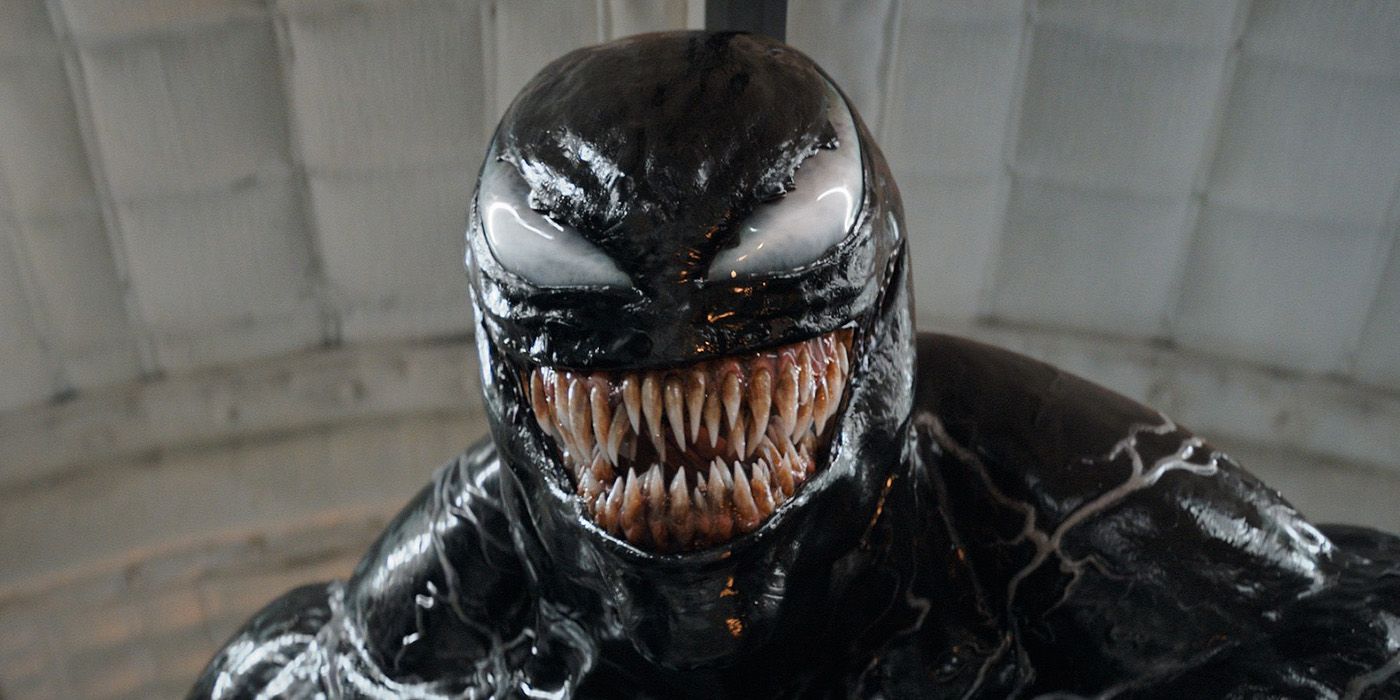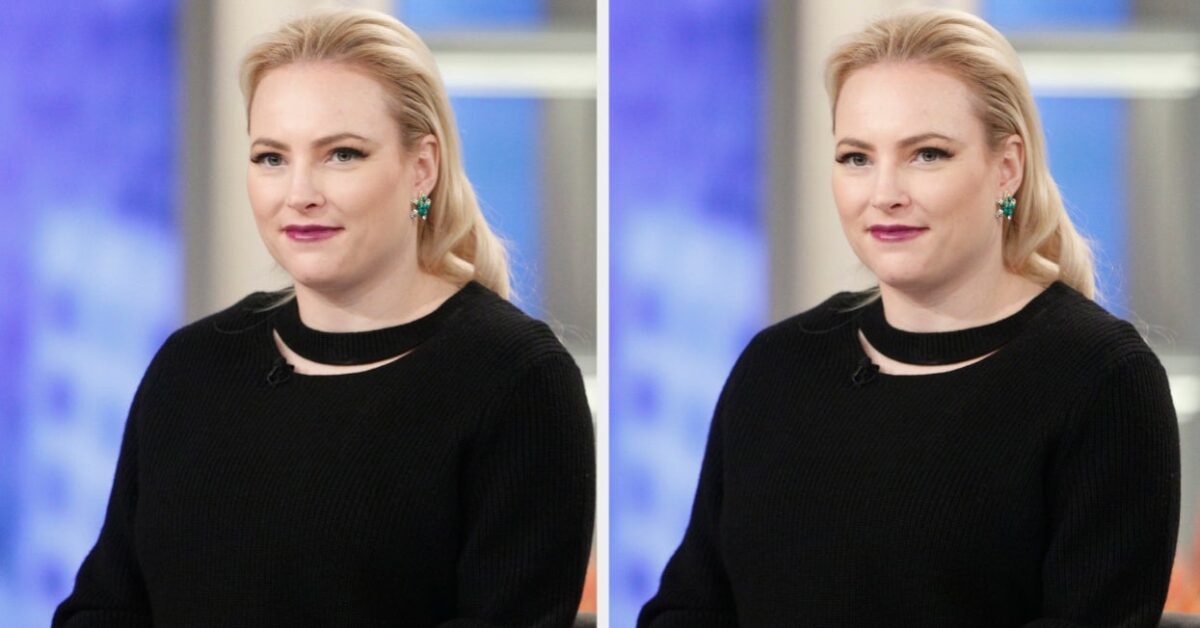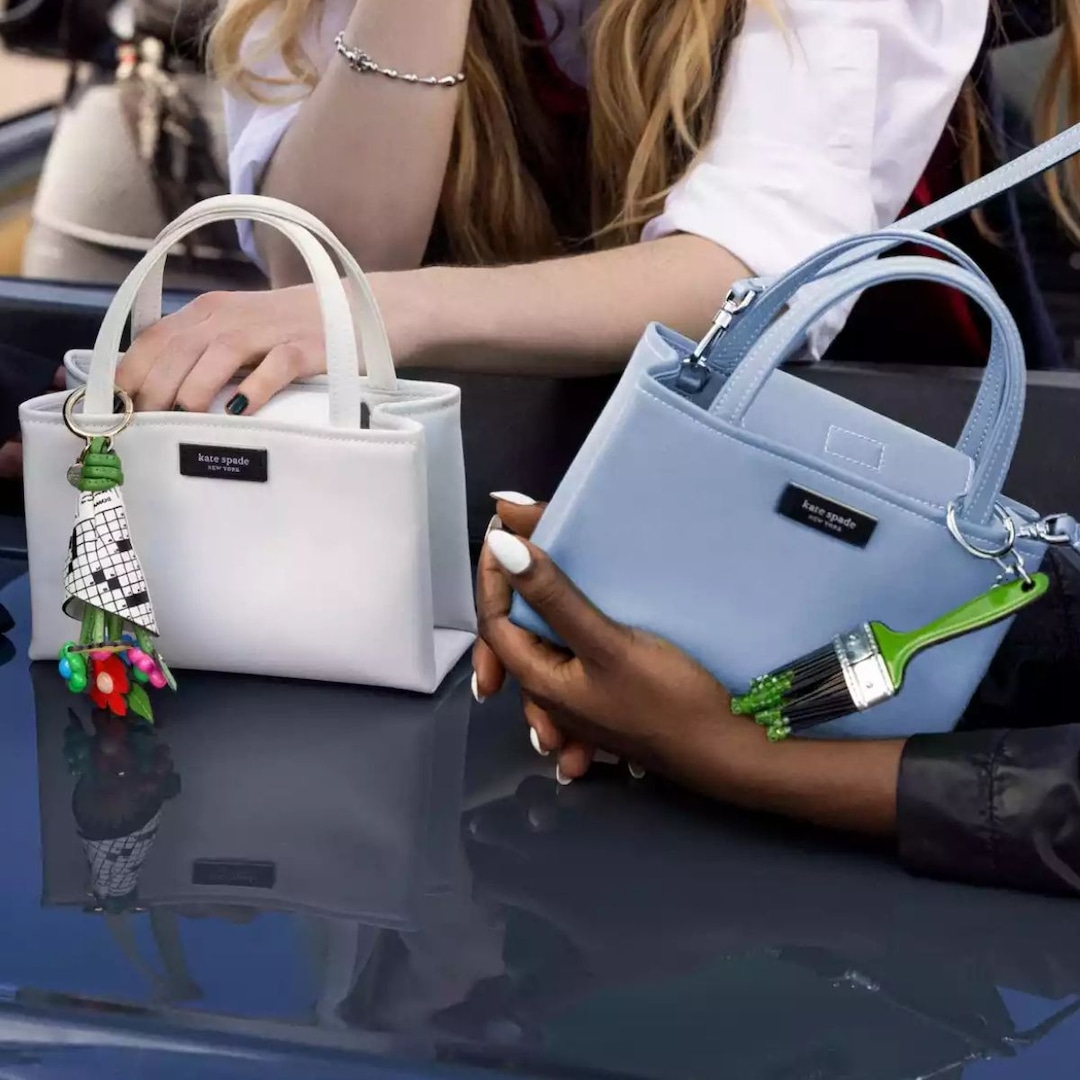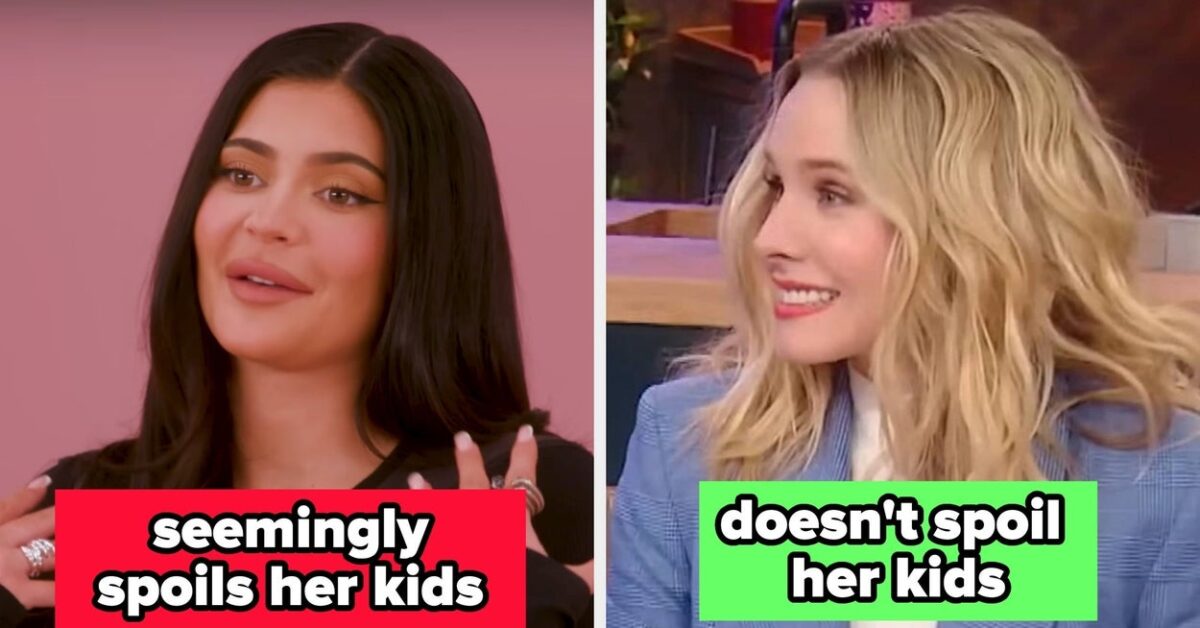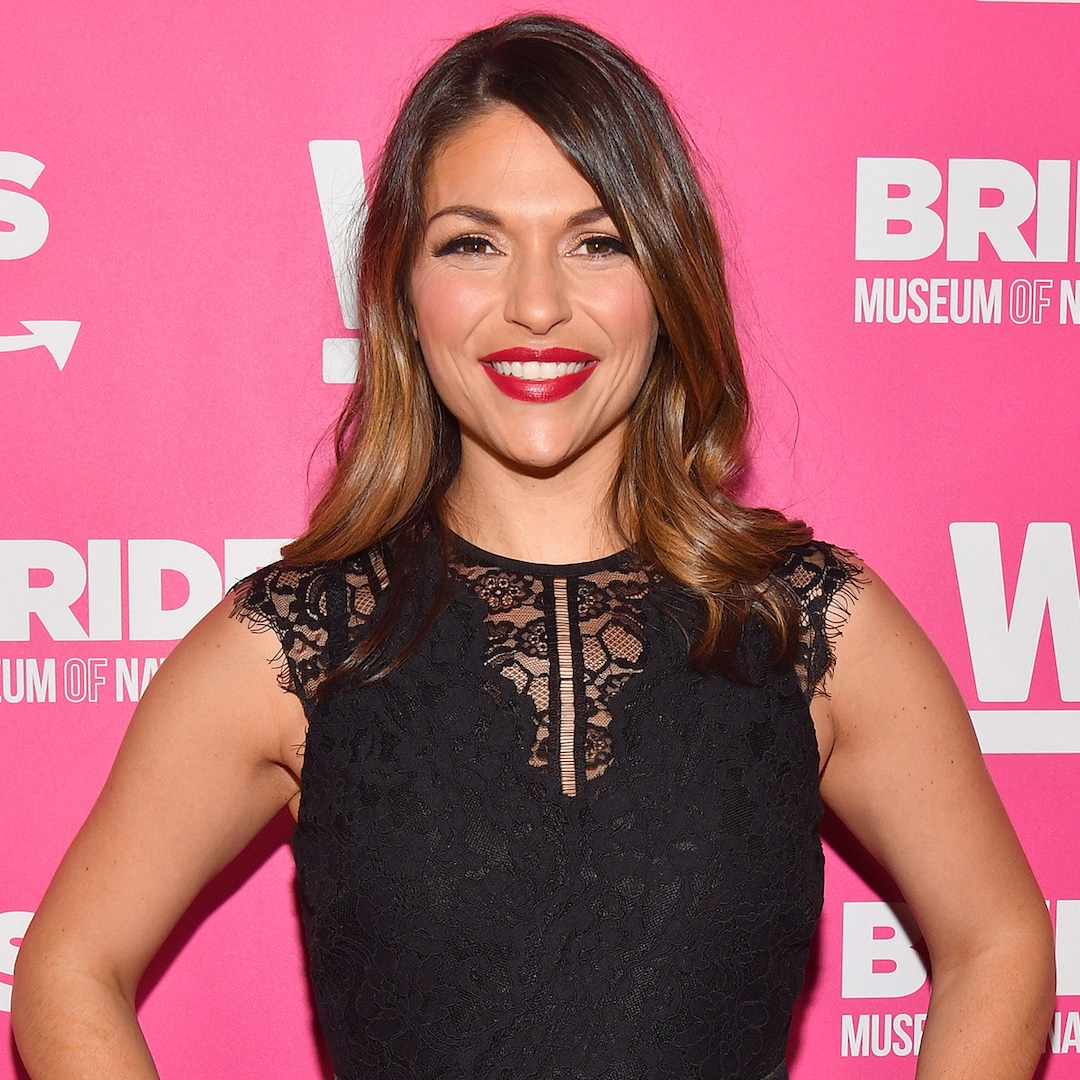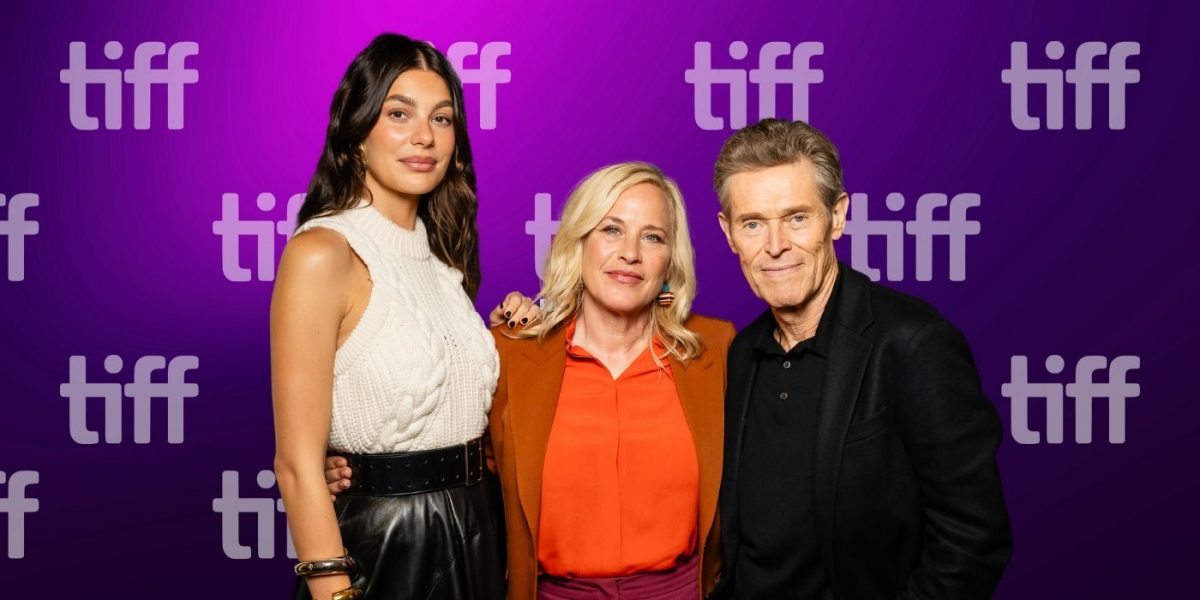
Willem Dafoe & Camila Morrone Held Each Other Like Babies for ‘Gonzo Girl’
Sep 13, 2023
The Big Picture
Patricia Arquette’s feature directorial debut is Gonzo Girl, an adaption of Cheryl Della Pietra’s semi-autobiographical novel about her time working as Hunter S. Thompson’s personal assistant Camila Morrone leads as Alley, an aspiring writer who accepts a personal assistant job working for her literary idol, Willem Dafoe’s erratic and drug-fueled Walter Reade. While at TIFF 2023, Arquette, Morrone, and Dafoe recalled some of the most memorable moments from bringing this story from page to screen.
The stars aligned for Patricia Arquette’s feature directorial debut in every respect. The Emmy and Oscar-winning actor was ready to get behind the lens with decades of experience under her belt, she found hugely promising material to work with and put together an ensemble that was eager to swing big, play, and try just about anything.
Gonzo Girl is an adaption of Cheryl Della Pietra’s semi-autobiographical novel about her time working as Hunter S. Thompson’s personal assistant. Thompson inspired Willem Dafoe’s character in the movie, Walker Reade. Camila Morrone’s Alley is hand-picked to be his new assistant after eight others who couldn’t keep up with Walker’s drug and party-heavy lifestyle, erratic behavior, and inability to meet his publisher’s demands. Determined to help her literary hero regain his former glory, Alley attempts to navigate his chaotic world without being totally consumed by it herself.
In celebration of Gonzo Girl’s World Premiere at TIFF 2023, Arquette, Dafoe, and Morrone all visited the Collider media studio at the Cinema Center at MARBL to chat about their experience bringing the story to screen. Check out the full conversation below to read all about the acting exercises Dafoe and Morrone did to prepare to play Walker and Alley’s curious connection, which past directors influenced Arquette’s approach to the work the most, how all three deal with writer’s block in their own craft, and loads more!
Image via TIFF
PERRI NEMIROFF: Patricia, why Gonzo Girl for your feature directorial debut? Is there anything about that material that you thought would well align with some of your goals for yourself as a director?
PATRICIA ARQUETTE: I always loved Hunter S. Thompson. It’s inspired by his spirit and him. It’s different, also. It’s fiction. It’s based on a book. But I love Hunter S. Thompson and I love that world, and I loved the ‘90s growing up as a young woman. I like this idea that it was some kind of a mix between a ‘90s movie and the ‘60s, kind of ‘70s world of Walker Reade’s character. I like this coming-of-age of this young woman – drugs, sex, rock and roll, creativity, writing, all of that – and how it’s so fun, and then once you crash and burn, it’s really ugly. So, co-dependency, addiction, writer’s block, all of these different kind of themes, beauty as currency, how it is as a codependent to kind of have blurred lines and boundaries and put your self-esteem into everyone else and how that pays off. It’s not a pretty picture.
I always love hearing about how a story evolves so what would you say is the biggest difference between the first draft of the screenplay you saw and what we now see in the final film?
ARQUETTE: I think there was a lot of changes that we went through over years. I thought there were some threads that were there for sure, but they just kind of needed to be pulled out or honed more. I wanted to look at that competition of beauty between women; what is that kind of currency? I think we brought that out more. We brought in his backstory of his family, which I think is really important because both the addict and the co-dependent have unhealed wounds, right? That’s why they’re working these things out with each other. So, kind of bringing more of that to the table. Seeing inside of him, this complicated man, and also the stuff with his editor, stuff where he’s talking about his childhood. More of the dynamic for her with these other women and that competition stuff.
Willem and Camila, for each of you, what aspect of your character were you most looking forward to playing when you first started filming, but then also, is there a particular part of them that wound up being more creatively filling to play than you ever could have imagined?
CAMILA MORRONE: That’s a great question, you go first! [Laughs]
WILLEM DAFOE: [Laughs] Okay! I just like the events. I like the world. I don’t think so much about character, really. I think about doing things, and there were interesting things to do in this, and there were proposals for interesting relationships. The fact that this character that I play has very distinct relationships with these three different women is interesting to me. The whole world where they’re living together is interesting. The party world is interesting. Just good writing. So many things. But the truth is, you don’t think about character. The only thing I knew was that we wanted to invent some things.
Of course much is inspired by Hunter S. Thompson and we want to respect that source, but it’s like that old maxim, “You can’t do your research,” you know? We had to make something else in order to make it alive and not be just a movie where you recognize something and you feel satisfied with that. When you dive into something where you don’t quite know where you’re going, it just allows the audience and also yourself as you’re making it to participate in a different way than if you’re doing a flat-out, let’s say, biopic or something where you’re doing an imitation and you say, “This is who this guy is.” I wasn’t so interested in that, and clearly, when I spoke with Patricia, neither was she.
ARQUETTE: Yeah, we didn’t want to do a caricature, you know? There’s so many more layers to human beings, and I was so grateful that Willem has so many colors. I mean, that’s kind of a corny thing to say, but as an actor, he really goes through all these different emotions.
Vital for a role like this, too. It doesn’t work otherwise.
DAFOE: But that’s not something I do. I’m reacting and I’m putting myself in these situations that were in the proposed text. That’s the beauty of it. I suppose that’s the best answer for why I was attracted to it. I had that instinct of, “These are gonna be interesting situations to put myself in through the filter of this Hunter Thompson-esque fiction.”
ARQUETTE: But you said something really interesting to me, I remember, at one point. The addict is very confusing because they’re lovely and warm and broken and a little boy, but then they’re charming, but then they turn and they’re mean to you, and then all of a sudden they’re nice again. He’s like, “This guy, my character, he’ll be mean or cold, and then a part of him feels bad and then he gives something back that’s kind of nice or wise or gentle or something.” And that is the beguiling nature of that that keeps luring you back in.
DAFOE: And it’s also the nature of drugs. [Laughs]
ARQUETTE: Yeah, exactly!
DAFOE: There’s an up and a down, and then up again and down again.
MORRONE: I would second what Willem said. I think that coming into this I knew that there would have to be a loss of self-consciousness and really tapping into the nerves for me to be playing opposite Willem and Patricia in this, the nerves of kind of doing this story justice and walking a fine line between student but also a peer and a fellow writer in many ways, and I think that that is a constant balance in this film. Alley is trying to figure out when to play the role of assistant and when to push and challenge him a little bit.
DAFOE: Sounds familiar. [Laughs]
MORRONE: [Laughs] I don’t know if I thought so much about character. I know that what was important for me was just coming into this really open, really vulnerable, using the fear whenever I could, using the uncertainty. It’s obviously very easy to do with an actor like Willem because everything he does is new and unpredictable, and that makes my job easier to play alongside him. So I think for me, it was just really being present. I think I wanted to track the deterioration of the drug use and how the addiction started to play for her, and I think that I saw that last night when Alley starts using on her own and how she’s kind of becoming a version of Walker in her own way.
I think also what I really wanted to focus on, which I thought worked really well while finally getting to watch the final cut last night, was just the love between these two characters. And I think that you do realize that there was a relationship there and it was love. There was a romance, and these people were in love, and I think that that was important on day one of rehearsals, that’s what we instantly went into.
Image via Photagonist at the at Collider TIFF Media Studio
You’re both tapping into this with those answers, but I love asking this question, especially when I see two actors who have maximum chemistry. Can you each tell me something about the other that you really appreciated as a scene partner, maybe even something that helped you reach something in your own character that you wouldn’t have been able to without them?
MORRONE: Willem can do it all without me. He doesn’t need me. [Laughs]
DAFOE: No, that’s not true. One of the first things that we did when we arrived was Patricia sat us down and had us look at each other, look into each other’s eyes for a long period of time, which sounds like a moronically simple exercise.
MORRONE: And hold each other like babies.
DAFOE: But that was the beginning to say, “Listen, you got to have complicity here. You’ve got to help each other here.” As much as possible, I didn’t feel a separation. Because of our ages or whatever, I think we have slightly different expectations and slightly different ways of working, but that doesn’t matter. What I appreciate about Cammy – I mean, I appreciate a lot of things – but she’s a worker. She doesn’t stop and she’s fun, but she’s also dogmatic so she keeps on going and I like that. I like self-starters. I like people that, you know, there’s not a lot of talk. It’s about doing. It’s about doing and trying stuff, and of course, Patricia was essential for setting that situation up. It was a fairly short schedule, so we had to really bang away, and we did.
ARQUETTE: Yeah, we couldn’t have done this in 21 days with people who were kind of half-assed or weren’t prepared. They have totally different processes, but they both came fully prepared every day. More than prepared. At a certain point, I had to say to Cammy, “Fuck that! Throw it out! It says here to pick up this thing, but if that’s not the right place that you’re trying to avoid him, it could be somewhere else, or not at all.” So we had to fly by the seat of our pants a lot.
DAFOE: And Patricia was great at that. I think that’s the beauty of film, and something that people mistake all the time in film. They have such a rigid idea of what they do that when they get to the place, they kind of force what’s there that’s not there. And she was very good at gathering some things, gathering some people, being in the room, and dealing with what’s there. It’s a more organic way to work and you always know where you are. It’s not like you’re planning ahead. You aren’t. It’s different for a director than an actor. She’s got to think about the result, and the actor doesn’t so much, but I always felt like it was a very present and organic way of working.
ARQUETTE: Like, there was this scene after the party, after he sees her kissing Larry where he freaks out and has a temper tantrum and sends everyone outside. When we go outside, he had this long speech, and it was another very up scene, and that makes sense. Okay, now he wants to take over the space, but it just didn’t feel right. So Willem was sitting there, I was freaking out, we were the first day in overtime, we had all these extras, but I was like, “This isn’t working.” You have to go from your gut, like, “This isn’t working.”
Willem’s there, he’s got this trumpet. He’s just sitting there blowing through it and I was like, “That’s the right vibe.” He makes everyone go outside, daddy had a freakout, everyone has to go outside. Now we’re cold, we don’t know what the fuck is happening, and he’s just having a pity party tooting his horn on the ground, like, “Okay, this is another side of that crazy addict thing.” Like, “I just shit all over the room. I just freaked out on everyone and now I’m sad, and now we’re all kind of in this dark cloud.” But it was them giving us the space. Willem staying in character and, “Where am I at?” And, “Let me just explore the space.” That brought the answer to what that moment should be. So, they were all in always, these two.
MORRONE: I think that the beauty of working with a director who has the experience that Patricia has as an actor is she just knows how to direct actors, and she also knows when not to direct actors. I found myself so many times coming up to her and being like, “Tell me what to do,” and she would just give me the confidence in that moment to keep following my gut that we were getting somewhere.
I walked into that rehearsal space the first day and Patricia had us do that exercise of not breaking eye contact, and I could hear my heart thumping in my ears. I was black-out nervous. It was my first time meeting Willem and that was our first experience, and she knew exactly what to do. She knew that she had to throw us into this situation so that we could right away break the ice. After that, we’re like, “Okay, we’re partners,” and something happens when you have that kind of silence and connection with someone. That was our first interaction, so it really set the tone for the rest of the filming.
Something I really learned in my own process through Willem was how much Willem respects the writing and the words. I think I grew up maybe at a time where it’s a little more lax throwing in words that help me get closer to the character and help her come to me instead of me having to go to her, and there’s a real respect for language with him. He would help me, and I would say, “Oh, should we add this line or lose this line?” And he was incredibly articulate, and everything he said had value and was right, and I learned a lot. I was able to notice some of my habits and traits, and wanted to lean more towards Willem’s because I agreed and that was great. And also, he’s just alive, and it’s different every take. And like I said before, it only can help my character because I was holding my breath in a lot of those scenes. So, there was an unpredictability and rawness to him and also a respect of language that I learned a lot from.
ARQUETTE: I felt like, also, your history with theater, you understood drive and you understood energy and pushing energy and what dissipates energy in a way that helped me a lot as an actor and a director. But it was interesting because here’s this guy who’s, in a way, his character, avoiding a lot of feelings, avoiding looking at a lot of real shit through an incredible maze of distractions he’s created around him, and then here’s this girl who is more feeling it out, feeling it through. So it’s like, in a way, both of these characters’ processes were totally different, too. So it was interesting kind of balancing that, seeing where to lean in with this one, needing to kind of absorb the moment when his character needs to jump to the next thing, and that making sense. Even in the edit, how do you find that balance where she’s absorbing and learning something or feeling something and where he is on the move?
Image via Photagonist at the at Collider TIFF Media Studio
Sounds to me like you were giving them everything they needed as an actor’s director. Can you give me an example of a past director that you found yourself channeling while directing this movie, but then also something you wish you had more of from actor’s directors on your past films that you strove to bring to set here?
ARQUETTE: I feel like you get a lot from each director, and each director I worked with, and most of them were males, were like parental figures to me and they were so generous with me. The most pivotal, I would say, as an actor, for me, was Tony Scott, who, every idea I had on True Romance, he’s like, “Great! Let’s do it.” And every idea Christian Slater would have, he’d go, “No, that’s a terrible idea.” [Laughs] But what he taught me as a young woman in the ‘90s was trust your instincts, they’re good. Because already, even in auditions, I’d been kind of squashed. “No, do this. Go here.” I’d had directors right next to the lens mouthing things and deciding when to smile, so to have this person kind of show me, trust your gut, to be able to say to this young woman, “Trust your gut,” and then, “Okay, we got that. Now try this thing that’s scary. Hey you, this guy is in touch with his anger,” or, “He’s not in touch with it, but it fucking comes out.” Like, “Let’s let those little raw sharp bits come out that are fucked up and scary,” you know? “Let’s let that happen.” And sometimes that would happen in the frustration of just the moment of the scene and having to get it before lunch and the camera jamming – there’s no camera jamming, but whatever it is, something going wrong.
Like, the fight scene was so weird because Anita Thompson had sent Willem Hunter’s real rope with a bullet in the pocket, and when they’re doing this fight scene, suddenly all these lights were going on and off in the middle of this very emotional scene. But it was like, “Whoa. Either the energy that they’re bringing to this room is turning lamps on and off, or it’s Hunter.” We weirdly started shooting it on Hunter’s birthday without even knowing that, and we opened the door at the end of the first day, and there was a giant rainbow. It was like, “Oh, this is good!”
I saw a movie recently that refers to things like that as “ghost winks,” and I believe in that. I believe that that really happens.
This is an idea that weighed heavily on my mind while I was reading the book and now while I watched the film, too. Patricia, you also summed it up well in your director’s statement. It’s the idea of, what is it to wrestle with writer’s block when your identity and livelihood depend on publishing? So for each of you, in your own craft, can you pinpoint a time when you hit that kind of creative wall and explain how you powered through it?
MORRONE: Honestly, I’m still in the place in my career where I’m auditioning for everything that I do and self-taping for everything that I do, and nothing comes easily in this business that we’re in. It’s often that I’m in “writer’s block” in terms of my energy and just being broken down from a lot of rejection. Patricia said something very interesting; a lot of directors molding you and wanting you to give the performance that they have in their mind rather than allowing you to discover the performance that is within you and don’t really allow you freedom. But I think that feeling of frustration and writer’s block is very often for me. And then there’s moments like this and like last night when we get to bring a project to a place like this with people who love movies, people who respect movies, people who understand movies, and then we all are here because we love this thing that we do. It’s little moments like this, like bringing it to TIFF, that you just get a little pat on the back and it’s like, “You know, you’re doing the right thing.” This is what all the work is for, moments like this. So yeah, it’s often for me as an actor. It happens on set, it happens probably once a day on set that I hit a block [laughs], and you have no choice but to just use that frustration and hopefully turn it into something.
DAFOE: Definitely there’s frustration sometimes, but the biggest practice, one of the biggest practices, is to be cool with where you’re at, and that’s something I devote a lot of energy to. I’m not saying I can do it, but I really concentrate on that a lot because when things are going well, it’s never enough. When things are going bad, it doesn’t seem like it’s ever gonna get better. And the truth is, the second you stop worrying, the tail falls off the lizard, you know? It really does. That’s always been my experience. When you can’t stand it anymore and you submit, something else opens up. So, you know, I don’t mean to sound so philosophical, it’s just a practical thing. Whenever I get frustrated, I say, “Be with what is and what will happen will happen.” You can’t force these things. And if you do force them, I don’t know, they don’t feel like they’re your life. You feel like you’re constructing something that isn’t connected to what’s going on.
MORRONE: That’s a big lesson I’ve learned from Willem.
I’m gonna replay that over and over.
ARQUETTE: I know, me too! For me, I mean, just in a practical sense, coming up as an ingénue who was, in movies, like, “Oh, you’re the girlfriend. You’re the dream girl,” or, “You’re the cute girl. You’re the trophy,” at a certain point, I realized this is a dead-end road. This is gonna go nowhere. So I did a movie with Michel Gondry [Human Nature] where I was covered with hair, and I was like, “I gotta get out of this fucking ingénue thing as quick as I can if I want to have a long career and be taken seriously.” So there was pivotal moments there. When I did Medium, going into TV when people didn’t want to go into TV, because my great grandparents were in vaudeville. They were doing shows for five cents a show, and I was like, “How do I do good acting for people in a trailer park?” I do it on network TV. That’s how you’re gonna do it! So I was doing that when people in movies didn’t want to be on TV, and then get the fuck back out of TV and go into movies.
I mean, I’ve always kind of had a little bit of a strategy of, “What are my next three chess moves?” Not that I had this crazy ambition to ever be a big star. I didn’t even hire a publicist when I was on the Oscar trail. But, for me to grow as a human, as an artist, to tell a story of human beings, how the fuck do I keep getting out of these boxes that I see I’m getting put in, this business is putting me in? “Thank you for all these opportunities, but don’t push me over there,” if that makes sense. A lot of people love True Romance, and I have a real love for that movie, but I didn’t want to stay in that either. You just have to keep reinventing and scaring the shit out of yourself and everyone else and asking them, “Why are you putting me in these boxes?” I don’t want to be in it. It’s not good for me, and it’s not good for what I can even offer here.
Publisher: Source link
McCain ‘Heartbroken’ Over Brain Cancer Research Cuts
There is no known cure for glioblastoma, though research has found ways to shrink the tumors and extend patients’ lifespans. McCain died just over a year after his diagnosis in 2017.Last month, the American Cancer Society Cancer Action Network (ACSCAN)…
Apr 5, 2025
Kate Spade Outlet: Sale Styles Over 70% Off, Get $69 Leather Bags
Our writers and editors independently determine what we cover and recommend. When you buy through our links, E! may earn a commission. Learn more. The Best Kate Spade Outlet Deals: Editor's Pick:... Disclaimer: This story is auto-aggregated by a computer program…
Apr 5, 2025
27 Celebrity Parents Who Spoil Their Kids Or Refuse To
27 Celebrity Parents Who Spoil Their Kids Or Refuse To Many parents value providing a better life for their kids than they had growing up. However, when those parents are rich and famous, it can be easy to indulge them.…
Apr 4, 2025
Bachelorette’s DeAnna Pappas Breaks Silence on Her Arrest
Jenn Tran & Devin StraderStatus: Split During the season 21 finale of The Bachelorette, it looked like The Bachelor alum Jenn Tran was finally getting her happy ending with her final pick Devin Strader. But Jenn, 26, revealed on…
Apr 4, 2025


